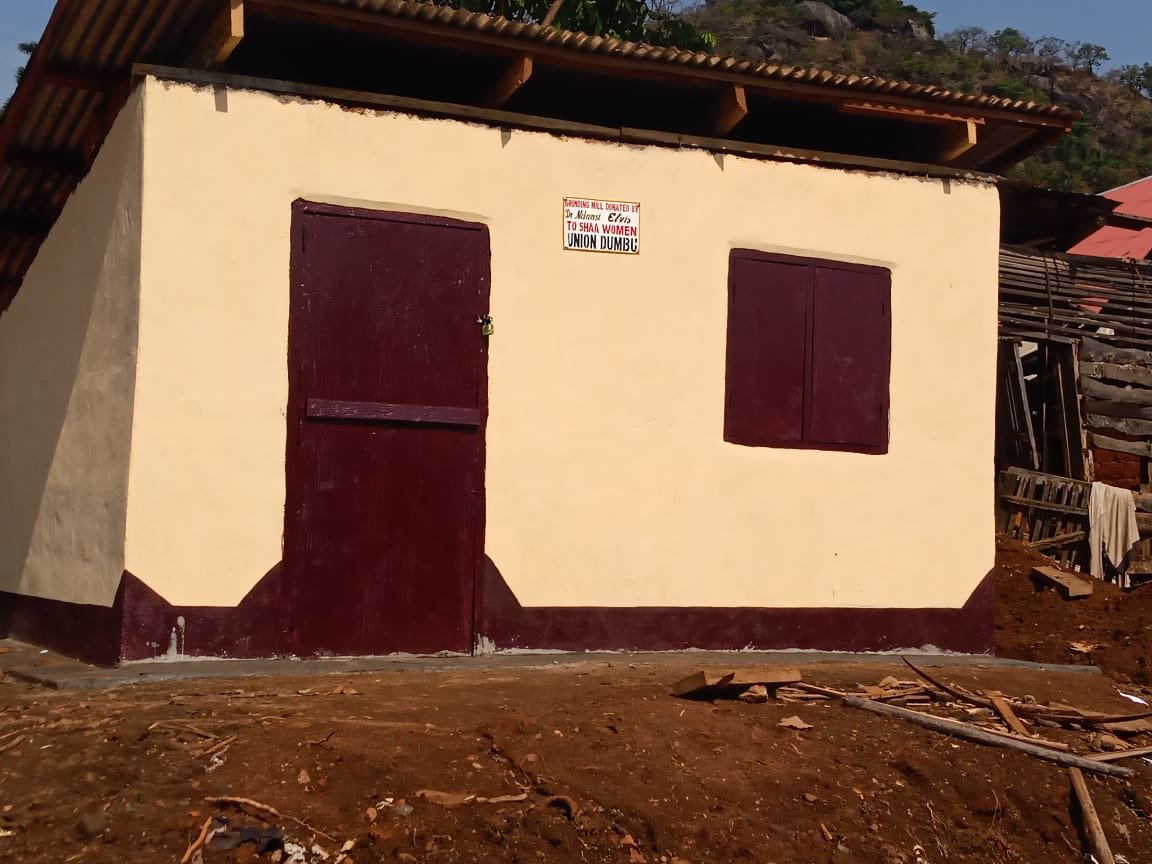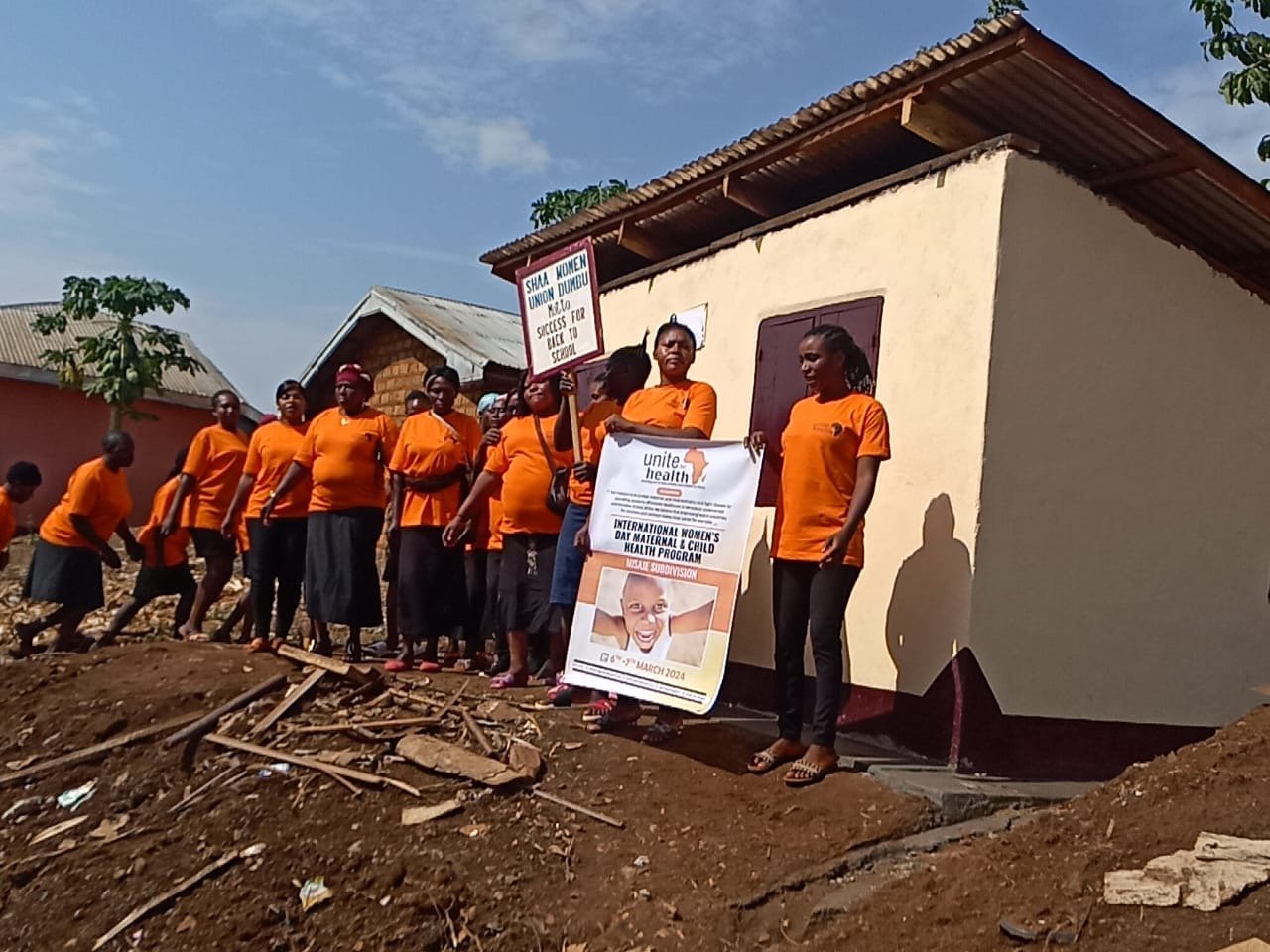In 2013, our founder created the first Shaa Festival to prevent disease and support women.
‘Shaa’ is a much-loved drink made with or without alcohol (‘strong’ or ‘sweet’ shaa) by women in Misaje and the neighboring villages in NW Cameroon. Its main ingredient is local corn and it is traditionally drunk from a cup that is rinsed in a bucket of water and reused by the next person. A ritual that can easily spread cholera, typhoid, or tuberculosis.
Women compete for cash prizes and learn life-saving rules of hygiene.
Our founder, Elvis Ndansi, grew up in Misaje and was concerned about his community’s health. He created the first Shaa Festival, now an annual event, to celebrate the women shaa-makers by awarding generous prizes while teaching basic hygiene. Every year, he donates buckets adapted with taps at the bottom so that cups can be rinsed in clean running water after each use.
A committee of men taste and grade the shaa and announced the top three finalists from each zone. Elvis encourages the winners to invest their prize money in their children’s education.
The added bonus every year is free shaa for everyone to share – without sharing diseases.
Motivated to win, women formed a union.
After the first Shaa Festival, the women in Misaje decided to form a union to better compete in the festival. Women in nearby Dumbo did the same.
A more efficient way to grind corn.
One critical and costly element of shaa production is grinding the corn. When Elvis decided to donate a grinding mill, the union needed a place to put it. One of the women gave a piece of land and they all got to work. The women molded blocks out of local soil and with the help of some men, they constructed a building and installed the mill.
After the corn has undergone its four-day fermentation process, the women can now grind it themselves. It used to cost about 50 cents to grind enough corn for 20 liters of shaa. Now each registered member pays half that.
Nonmembers can grind their own corn for a fee. At the end of the year, the revenue generated will be shared among union members to help pay for their children’s school fees or medical bills.
The union can also loan money to members in times of difficulties. Shaa production has truly become a collaborative community effort, launched by the desire to win the festival’s valuable prizes.
Shaa Women Union Dumbo’s grinding mill building.
THE 7th Shaa festivaL
Misaje Shaa Festival 2024 empowers women, children, transform lives
by THE HILLTOP MAIL - September 01, 2024
Leaving her village of Kamine on the morning of Saturday, August 31, 2024, little did Shey Stella imagine that she would return home as the champion of the Misaje Shaa Festival. As she made her way to Misaje town, the cool morning air carried the hopes and wishes of the day’s events. With the weight of her hopes and dreams on her shoulders as she carried a 20 litres jug on her head, Stella joined 14 other women who had also qualified for the grand finale after a series of rigorous zonal competitions.
The Misaje Shaa Festival, now in its twelfth year, has become much more than a celebration of the traditional locally brewed drink called Shaa. Supported by the Unite for Health Foundation, a
health institution dedicated to promoting maternal and child health, the festival was way bigger than previous years. For Stella and the other participants, the stakes were high; not just for the cash prizes but for the future of their families, Shaa unions and communities.
As the sun rose higher, Misaje town was filled with excitement…
Shey Stella, winner of the 2024 Shaa Festival. Photo courtesy of HilltopVoices.
Misaje Shaa Festival 2024 presented by CRTV.
The Sixth Annual Shaa Festival 2023
In September, the Shaa Festival successfully concluded with cash prizes for the winners and back-to-school gifts for 20 orphan children.
“I will spend the money to pay for my children’s school fees, their books, everything for them.”
MISAJE Shaa Festival 2022
The 2022 Misaje Shaa Festival attracted 62 women producers who competed for the significant cash prizes. The winner and the runner up (who was pregnant) were thrilled with the unexpected income.


























